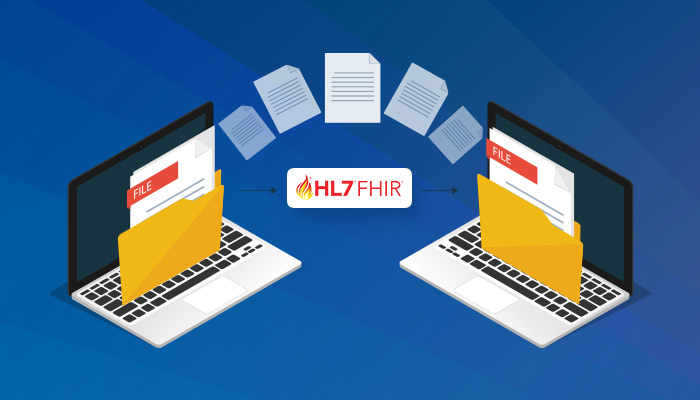
Why do we talk about the need for health data exchange standards? Why do we talk about HIPAA compliance? What is FHIR and why is it so important? These are all lengthy and complicated topics that are hard to fully grasp. Yet, we in the healthcare industry try and learn and understand as much as we possibly can about them. Why?
Because we care.
That’s the reason we EHR vendors, doctors, nurses and everyone in the healthcare ecosystem enter this field. We care about people. But care means a lot of different things. For a doctor, providing care means diagnosing and treating an illness, so that the patient doesn’t suffer any longer.
For a board member of a healthcare organization, providing care means providing the best possible care environment(hiring the best doctors, nurses, having the latest technology, etc), so that the patient receives the best possible care.
For us, those who evolve around the health IT sector (EHR systems, or any other ehealth solution), providing care means providing a system that works seamlessly for the doctors and nurses helping them provide the best quality care to the patient.
Because of other EHR vendors providing off the shelf, hard to use EHR systems and making mistakes in the past, those in the healthcare ecosystem are still wary of trusting EHRs fully. But that should no longer be a problem. Because in the last five years, the whole game has changed, with the emergence of Standards Development Organizations(SDOs), who consistently update health data standards for EHRs.
Now first of all, we know that the ability to transfer data is important. For EHR systems to do this, they need to be interoperable. Not just interoperable, they need to be interoperable while protecting patient data, while maintaining the integrity of the data and while being quick. This could be the difference between a patient living or dying. If a patient is deathly allergic to shellfish and their primary care physician transfers this and all the rest of their data, over to an EHR server that is not compatible with theirs, important information like this might not be transferred and this could end up causing catastrophic and potentially fatal consequences.
Or let’s say in the same scenario, the data was transferred fully, but some nefarious no-gooder was able to intercept the data. Now this patient has their private medical information compromised. What if the patient is someone in a position of power, who could be compromised or blackmailed with the information that was stolen?
This goes against the idea of care that all of us in the healthcare ecosystem are focused on.
But what if this fear doesn’t need to exist?
What is FHIR and why is it important?
HL7 Fast Healthcare Interoperability Resources(FHIR) is the latest standards requirement and it is being widely praised. Their suggestions are tightly focused, while allowing EHRs the versatility to be used in mobile devices, web-based applications, cloud communications and EHR data-sharing using modular components. They’re also focused on making it easier for third parties developers to provide medical applications which can be easily integrated into existing systems. They’re focused on getting legacy EHRs to a point where they can be interoperable.
[Read More: The eHealth Exchange and Interoperability in HIE]
The importance and impact of this is self explanatory. Exchanging health data is common place and a necessity in the globally connected world we live in. The ability to do it fully, properly, safely and quickly is why FHIR is making waves.
FHIR is being accepted and implemented by vendors at a rapid rate and have become one of the, if not the, most popular standards in the field.
With FHIR, direct messaging between organizations would be a reality as well. With FHIR, it would be possible to build a system of communication between organizations that would allow for health data to be transferred as quickly as a text, without the risk of that data being accessed by someone else.
Like we said at the start, those of us in the healthcare industry try our best to keep up to date with this information because we want to make sure that we can provide the best care possible. That’s why we at blueEHR have implemented the standards set by FHIR.
As care providers, we know that the care we provide doesn’t start and stop when the patient comes in to see us. We have a responsibility to make sure that the trust they put in us by giving us their information is kept safe and secure. And as we live in a world that is technologically advancing at a rapid pace, and as it is taking the healthcare industry with it, we need to be staying on top of it.